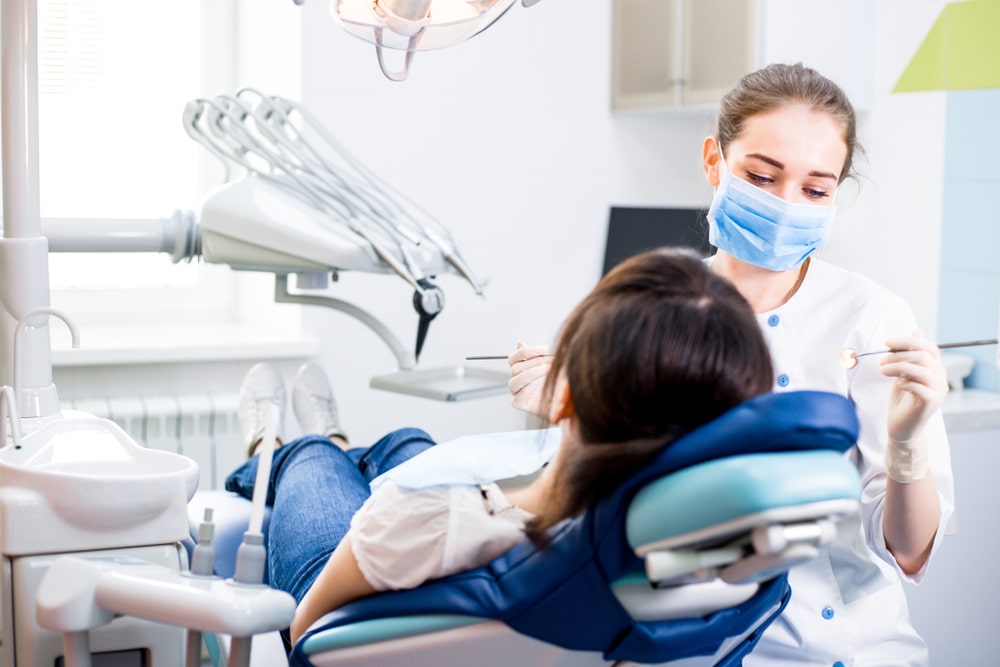Are you a fan of HGTV shows like Fixer Upper, where experts show average Americans just how easy it is to “do it yourself,” or DIY, home renovations? Well, it may be easy to install your own tile backsplash or create the perfect accent wall, but there are some things that really are best left to the experts. One of those things is the treatment of your temporomandibular joint disorder, or TMD. Here’s why.
A quick Google search for at-home TMD treatments can easily yield dozens of results. At-home, one-size-fits-all orthotics can be purchased online and at the pharmacy for as little as $15. When you compare that to the cost of a complete neuromuscular dentistry treatment and possible full-mouth reconstruction, it seems like you’re getting an amazing deal. But the truth isn’t always what it seems.
Save Your Money – Or Your Smile
Fifteen bucks to treat a TMD seems like a bargain until you realize that A) it won’t work, and B) it will probably end up making your TMD worse. So not only are you out the $15, but you still must also treat your TMD professionally, and it may even end up costing you more money depending on how much damage the OTC treatment caused.
One Size Doesn’t Fit All
How many times have you seen something that claims to be “one size fits all” only to buy it and find that it most certainly doesn’t? That’s because we’re all built differently – and even the more modern “one size fits most” can be misleading with so many variations in body types.
And just like those drug store sunglasses that don’t quite sit properly on your nose or that sun hat you bought that constantly falls in your eyes, contrary to what these orthotic manufacturers would like you to believe, their “one-size-fits-all” approach to TMD treatment can’t work, either.
That’s because there is no “one size fits all” solution to TMD. For starters, everyone’s mouth is shaped differently. Our jaws, teeth, bite and temporomandibular joints are all different – and so are our specific problems. Even with neuromuscular dentistry, the same treatment plan that helped your brother may not do anything for you – or it might make your TMD worse.
But What About Boil and Bite?
A lot of people think they can get professional results from a “boil and bite” aligner. These mouth guards are roughly the same shape as your jaw, but you can customize them further by boiling them and then biting into the softened material inside. This creates a perfect fit to your teeth – and only your teeth. In theory, this sounds like a great idea, but these aligners are really designed for athletes who must protect their teeth during a sport or strenuous physical activity. And while these OTC aligners are somewhat customized, treating a TMD is about more than just protecting your teeth.
Aside from a boil and bite aligner not accounting for every piece of what is often a multi-faceted problem, these aligners also have the potential to make TMDs worse. That’s because if they don’t account for individual issues within the TMD, they could actually push your jaw further out of alignment. Remember that part about one size not fitting all? Well, if your jaw needs to move slightly forward and your best friend’s needs to move a little backward, if you use the same OTC aligner that pushes your jaw forward, her jaw will get worse and yours might get worse too if it’s pushed too far or not forward enough. Worse yet, you could force your bite out of alignment in such a way that requires orthodontic correction further down the road!
The Neuromuscular Dentistry Difference
So, what is the solution? Neuromuscular dentistry is the most effective way to treat TMDs, often to the point of completely eliminating your symptoms. We do this by treating not just one area of the mouth, such as the bite or the jaw, but every area affected by the TMD, so that all the pieces of the mouth and jaw work together harmoniously. This not only corrects every problem caused by or causing the TMD pain, but it also helps ensure that the TMD stays away permanently
No TMD treatment plan is identical, but they all work toward the same goal: getting rid of your TMD pain. If you’re interested in learning more about how neuromuscular dentistry can help your TMD, please give Dr. Alexandra George’s office a call at 724-934-3422 and schedule a consultation.



